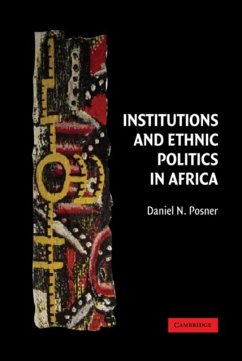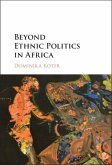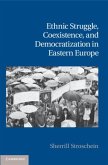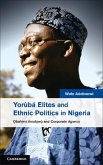This book presents a theory to account for why and when politics revolves around one axis of social cleavage instead of another. It does so by examining the case of Zambia, where people identify themselves either as members of one of the country's seventy-three tribes or as members of one of its four principal language groups. The book accounts for the conditions under which Zambian political competition revolves around tribal differences and under which it revolves around language group differences. Drawing on a simple model of identity choice, it shows that the answer depends on whether the country operates under single-party or multi-party rule. During periods of single-party rule, tribal identities serve as the axis of electoral mobilization and self-identification; during periods of multi-party rule, broader language group identities play this role. The book thus demonstrates how formal institutional rules determine the kinds of social cleavages that matter in politics.
Dieser Download kann aus rechtlichen Gründen nur mit Rechnungsadresse in A, B, BG, CY, CZ, D, DK, EW, E, FIN, F, GR, HR, H, IRL, I, LT, L, LR, M, NL, PL, P, R, S, SLO, SK ausgeliefert werden.









